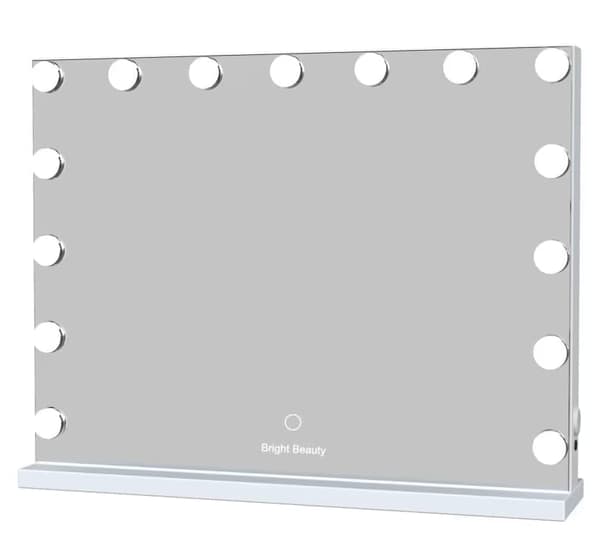
How To Construct Your Intellectual Pedigree: A History Of Mentoring In Science
1.005 kr.
1.005 kr.
På lager
Man., 27 jan. - tors., 30 jan.
Sikker betaling
14 dages åbent køb
Sælges og leveres af
Adlibris
Produktbeskrivelse
This is a handbook that shows the reader how to construct an intellectual pedigree. It is also a history of science monograph because the completed intellectual pedigrees can be used individually or collectively to trace the influences of mentoring in the life sciences. The author uses Hermann Joseph Muller (1890-1967) (which includes his own intellectual pedigree) to show how knowledge was shifted from Italy to Germany and England, to France, and then to the American Colonies. Through Muller, the author goes in two directions, one leading to Huxley, Darwin, and Newton. The second leads to Agassiz, Malpighi, Borelli, and Galileo. The author also shows, from comparing 60 additional intellectual pedigrees, that about one third go to Newton, one third to Galileo and the rest to other icons of the past (e.g., Linnaeus, Lavoisier, Gay-Loussac, Leibniz). It shows how small was the pool of available scientists in the universities before the mid-19th century.This book will stimulate graduate students and faculty to construct their own intellectual pedigrees. It will also be of interest to historians and philosophers of science. The book discusses the role of mentoring, dividing this into inputs of intellectual development as well as outputs of development, using timelines arranged as circles. For each mentor, a brief account is given of that person's work and relation to the subject of the pedigree.
Varenr.
4f233f33-5d9b-404a-9a00-4ddc1c087dc6
How To Construct Your Intellectual Pedigree: A History Of Mentoring In Science
1.005 kr.
1.005 kr.
På lager
Man., 27 jan. - tors., 30 jan.
Sikker betaling
14 dages åbent køb
Sælges og leveres af
Adlibris
Lignende topsælgere

Bright Beauty
Bright Beauty Vanity Namira - make up spejl med belysning - hollywood spejl - schminke spejl med lys - hvid - dæmpbar med tre lystilstande
599 kr.
4,5(79)
tirsdag, 21 jan.

Generic
Timer til Klasselokalet - 60 minutter
169 kr.
4,2(55)
tirsdag, 28 jan.

Bright Beauty Vanity
Bright Beauty Vanity Namira - make up spejl med belysning - hollywood spejl - schminke spejl med lys - hvid - dæmpbar med tre lystilstande
659 kr.
4,3(911)
tirsdag, 21 jan.

Bigzzia
2-i-1 foldeløbebånd, elektrisk løbebånd under skrivebordet, jogging til hjemmekontoret Sort
1.549 kr.
4,2(297)
onsdag, 29 jan.

Fenchilin
FENCHILIIN Stor Hollywood Makeup Spejl med lys USB bordplade vægbeslag hvid 80 x 58 cm
961 kr.
4,6(171)
tirsdag, 21 jan.

Fisher Price
Fisher Price Grin Og Lær Bordblandinger Dj Søvfarvet
473 kr.
torsdag, 30 jan.

Vitu
Nødradio med solceller og håndsving Solcelle 2000mAh Powerbank SOS
199 kr.
4,2(117)
tirsdag, 21 jan.

Bright Beauty Vanity
Bright Beauty Vanity Namira - make up spejl med belysning - hollywood spejl - schminke spejl med lys - hvid - dæmpbar med tre lystilstande - roterbar
549 kr.
4,1(47)
tirsdag, 21 jan.

Generic
10-Pak - G4 Halogenpærer / Stiftpærer – Halogen 10W
59 kr.
3,3(3)
tirsdag, 28 jan.

Rattrix
Sammenfoldelig justerbar vægtbænk, 660 LB kapacitet - Kompakt og sammenfoldelig vægtbænk til hjemmegymnastik, fuld kropstræning B
549 kr.
5,0(2)
tirsdag, 28 jan.
Anbefalede produkter

Generic
Ørepuder til Bose QuietComfort - QC35/QC25/QC15/AE2 Hovedtelefoner Svart
69 kr.
4,5(712)
tirsdag, 28 jan.

IVOL
Flyseng / oppustelig fodstøtte / fodpude - 3 højdepositioner
171 kr.
4,2(4)
tirsdag, 21 jan.

Vitu
Nødradio med solceller og håndsving Solcelle 2000mAh Powerbank SOS
199 kr.
Tidligere laveste pris:
279 kr.
3,6(28)
tirsdag, 21 jan.

Magnetic
Magnetic Tiles Kuglebane 88 dele
329 kr.
Tidligere laveste pris:
480 kr.
4,8(4)
tirsdag, 21 jan.

Generic
Oplader til Oral B Eltandbørste med Tandbørsteholder
69 kr.
4,0(140)
tirsdag, 28 jan.

Bright Beauty Vanity
Bright Beauty Vanity Nina - makeup spejl -make up spejl med belysning - hollywood spejl - schminke spejl med lys - hvid - dæmpbar med tre lystilstande
439 kr.
4,0(238)
tirsdag, 21 jan.

Generic
Knivssæt til Børn 6-dele - Børnevenlige knive
129 kr.
4,2(27)
tirsdag, 28 jan.

INF
INF Kraftig negleklipper til tykke tånegle
110 kr.
4,9(7)
mandag, 27 jan.

Remote TV
Ersättningsfjärrkontroll för Chromecast Google TV G9N9N
89 kr.
Tidligere laveste pris:
99 kr.
3,0(6)
fredag, 24 jan.

Mobil o Teknik
Blodtryksmåler til overarmen med hukommelsesfunktioner
159 kr.
Tidligere laveste pris:
169 kr.
4,0(145)
mandag, 27 jan.